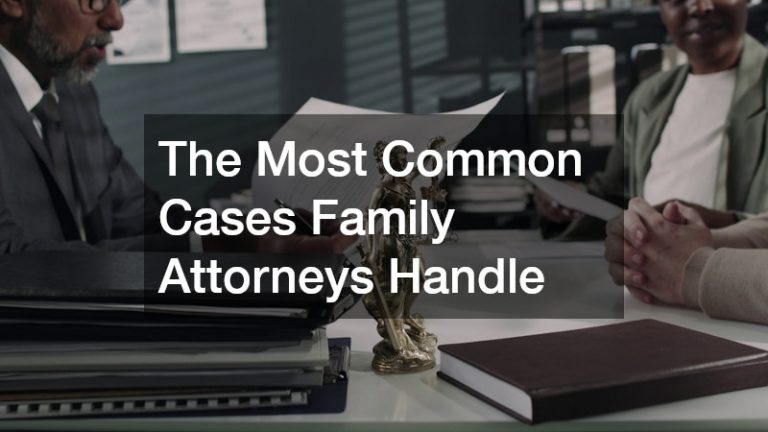
Introduction
In the labyrinth of the legal system, having a victim lawyer by your side can make all the difference. This narrative seeks to elucidate the pivotal moments that follow once a victim lawyer is called to action. Understanding each phase is crucial for anyone seeking justice when navigating the intricacies of injury law or dealing with civil litigation.
Victims often find themselves overwhelmed by the complexities of the law. The initial step is acknowledging the importance of a victim lawyer, who helps untangle these intricacies. This article will not only discuss why a victim lawyer is called but will also offer insight into the various stages of legal proceedings.
Each section offers a detailed exploration of the process, from the first phone call to the moment of closure. The journey towards justice involves more than just a verdict; it is a pathway guided by professionals such as a trust attorney, disability attorney, and even appeals lawyers. With expert guidance, a victim can navigate legal complexities with greater confidence and clarity.
The First Call That Changes Everything
When a victim lawyer is called, the initial conversation can set the tone for the entire legal process. This first call is critical in establishing trust and clarifying expectations with the attorney. Whether dealing with a local immigration lawyer or a criminal attorney service, the dialogue should focus on understanding the unique aspects of the case.
This conversation often involves a detailed explanation of how the lawyer intends to tackle the complexities of the case. Having a clear plan and obtaining information from the lawyer helps alleviate some of the victim’s anxiety. The first call is also an opportunity for the victim to express their needs and expectations candidly.
Engaging with a victim lawyer can feel overwhelming at first, but it is an important step towards empowerment. The attorney’s role is to listen and ensure the victim feels supported throughout the legal journey. This initial dialogue marks the commencement of a collaborative relationship focused on achieving justice.
Understanding Your Rights from the Start

One of the most important roles of a victim lawyer is to educate the client on their rights. Understanding these rights allows victims to navigate the legal system more effectively, whether they are dealing with criminal charges or seeking compensation for a vaccine injury. A knowledgeable attorney ensures that the client’s rights are upheld throughout the legal process.
This education extends beyond general information; it involves customized advice tailored to the specifics of the case. An attorney’s expertise is invaluable in clarifying the potential paths and outcomes, offering realistic expectations and guidance on pursuing justice. Knowledge is empowerment, and understanding these rights can significantly impact the victim’s experience.
For anyone entering a legal battle, knowing one’s rights is foundational. It builds confidence and allows the victim to engage with the process more proactively. An informed client is often a more engaged one, better positioned to participate meaningfully in their legal journey.
From Consultation to Case: The Early Steps
The transition from consultation to an active case involves several critical steps. During this stage, the victim’s lawyer will gather pertinent information to build a solid foundation for the case. Meeting with a disability attorney or specialist lawyers, such as those focused on injury law, might be required to compile a comprehensive narrative.
These early stages are crucial in setting up the framework for future success. They involve in-depth discussions and strategic planning, as well as assembling evidence and outlining potential legal strategies. This thorough groundwork lays the groundwork for the negotiations or trials that may follow.
Clients often need reassurance during these early steps. The victim’s lawyer plays a pivotal role in providing updates, answering questions, and maintaining clear communication. When a victim lawyer is called, their early involvement can significantly impact the coherence and effectiveness of the entire legal strategy.
Navigating Complex Systems with Expert Guidance

Legal systems can be daunting and complex, but expert guidance from a qualified lawyer transforms challenges into manageable tasks. A seasoned attorney, particularly one specializing in civil litigation or as a trust attorney, can elucidate intricate legal procedures. This expertise is especially beneficial when clients face overwhelming bureaucratic hurdles.
Having a victim lawyer is invaluable when dealing with multifaceted legal issues. Whether confronting allegations with a criminal attorney service or negotiating claims with appeals lawyers, professional guidance is crucial. Attorneys provide a roadmap through numerous legal nuances, ensuring that their clients remain informed and empowered.
The assistance of expert guidance can present victims with a sense of security throughout the legal process. This knowledge offers clarity and reassurance that are essential as victims step through each phase of their legal journey. With expert counsel, victims remain focused on their objectives without being overwhelmed by the system’s complexity.
Building a Case That Speaks for You
Case-building is an art and a science, requiring strategic insight and meticulous attention to detail. A victim lawyer’s role involves presenting the case in a powerful, compelling manner. Elements of storytelling, combined with factual evidence, make for a persuasive argument in any legal setting.
Building an effective case means integrating testimonies, evidence, and expert opinions to create a coherent narrative. A trust attorney or disability attorney may be called upon to provide unique insights relevant to the case’s specific needs. These elements come together to craft a representation that genuinely reflects the victim’s story.
The collaborative effort between attorney and client is crucial in building a successful case. Clear communication and shared objectives ensure that the case aligns with the victim’s goals and circumstances. A well-constructed case speaks for the victim, articulating their experiences, needs, and desired outcomes.
When Emotions and Evidence Collide
The interplay of emotions and evidence is often a delicate balance in legal proceedings. A victim lawyer helps navigate this aspect, ensuring that strong emotions do not cloud judgments or obscure the facts. This is vital in civil litigation, where emotional testimonies must align with concrete evidence.
Emotional resilience and preparation are also critical as victims face potentially painful legal confrontations. An experienced local immigration lawyer or injury attorney understands these challenges and offers support. They assist victims in maintaining composure while presenting their case effectively.
Victims must express their experiences authentically while focusing on the evidence at hand. Their lawyer serves as a guide, channeling emotions into constructive avenues that strengthen the case. By doing so, attorneys help ensure a professional handling of both the personal and procedural aspects of the case.
The Role of Advocacy in Tough Moments

Advocacy is at the heart of a victim lawyer’s mission, particularly during challenging moments in the legal process. This commitment to representation and support is vital, whether facing an aggressive prosecution or negotiating sensitive disability claims. A skilled lawyer advocates fiercely for their client’s rights and interests.
Effective advocacy requires thorough preparation and strategic insight. A victim lawyer works diligently to represent the client’s perspectives and protect their legal rights throughout the proceedings. From cross-examinations to insurance negotiations, advocacy ensures that the client’s voice is continually heard.
An attorney’s advocacy is most evident in moments that test the resilience of both client and counsel. This unyielding commitment provides solace and assurance that the client’s interests are the attorney’s top priority. Such tireless advocacy can be instrumental in achieving desired outcomes in complex cases.
Preparing for a Process, Not Just a Verdict
The journey toward legal resolution is as important as the verdict itself. When a victim lawyer is called, they guide the client through a process that is both educational and transformative. This perspective ensures the client is prepared for each phase and understands that justice is a continuous effort.
Preparation involves more than the anticipation of courtroom proceedings. It demands setting realistic expectations and equipping the client with knowledge and coping strategies. Engaging with criminal attorney services or other specialty counsel, victims become more adept at navigating the process.
Victims often find empowerment through thorough preparation and understanding. The focus shifts from the anxiety of verdict anticipation to the empowerment found in navigating the journey. A prepared client is a formidable presence in any legal situation.
Behind the Scenes of a Legal Strategy
A strong legal strategy often involves behind-the-scenes consultations, research, and meticulous planning. Victim lawyers engage in comprehensive analysis to create robust defenses or claims, whether working on a civil litigation case or a vaccine injury claim. This back-end work is foundational for effective legal representation.
Building a strategy involves collaborating with a network of experts and specialists, including appeals lawyers and trust attorneys. These collaborations ensure that all aspects of the case are professionally managed and strategically addressed. An adept legal strategy often transforms potential challenges into actionable solutions.
The strategic efforts and planning are not always visible to clients. However, this dedication is critical in building a resilient case that supports the client’s pursuit of justice. Understanding the depth of strategic work behind their case fortifies a victim’s trust in their lawyer’s capabilities.
Facing Institutions with Confidence
Facing large institutions or complex legal systems can be an intimidating endeavor. A victim lawyer, whether they specialize in injury law or operate as an appeals lawyer, provides the client with the confidence necessary to confront these challenges. Legal professionals level the playing field between individuals and powerful entities.
Attorneys equip clients with the tools and strategies to face institutions assertively. Their understanding of the law and thorough preparation places victims strategically within legal frameworks. A confident approach is cultivated through trust and comprehensive knowledge of the case.
This confidence extends beyond the courtroom. It empowers the victim outside legal doors, enabling assertive communication and negotiation. The client becomes more than just a participant; they emerge as a proactive force in their legal journey.
Knowing When to Push, Settle, or Appeal

One of the most strategic decisions in any case is determining when to push forward, settle, or appeal. A victim lawyer, utilizing their expertise, provides crucial guidance in understanding these options. Each path holds different opportunities and challenges, particularly within the realms of injury law or civil litigation.
Engaging with a skilled attorney means receiving individualized advice on the merits and timing of each choice. Whether considering settlements or pursuing appeals, expert insight ensures that decisions align with the client’s interests and legal strategies. The lawyer’s experience is instrumental in navigating these pivotal points.
Empowered with knowledge and supported by a victim lawyer, clients approach these choices with clarity. Their decision-making process becomes informed and intentional, aligning with their overall pursuit of justice. This strategic oversight helps define the outcome and scope of the legal journey.
Voices Heard, Stories Validated
The legal process can often feel impersonal, but a victim’s lawyer ensures that the client’s voice remains central throughout. Their role extends beyond legal representation; they validate the client’s story and experiences. Advocacy in this regard is paramount, particularly in emotionally charged cases.
Lawyers craft narratives that powerfully convey the client’s experiences, enhancing sympathy and understanding before the court. This representation extends into collaborations with disability or trust attorneys, fostering comprehensive storytelling. Victim lawyers are committed to maintaining the integrity and authenticity of the client’s voice.
The validation of their story empowers victims, reinforcing their commitment to seeking justice. Acknowledging their experiences within the legal framework provides closure and reinforces confidence. Through their lawyer’s efforts, victims feel heard and respected at every stage.
The Long Road Toward Justice and Closure
Journeying towards justice is often a long and challenging trek, with closure being the ultimate goal. Victim lawyers walk alongside their clients from the initial call to the case’s resolution. They provide the tools, support, and determination necessary to pursue justice relentlessly.
As cases progress, the goal remains steadfast: to seek a resolution that reflects justice and provides a sense of closure. This journey can involve confronting many stages, from initial hearings to facing significant appeals. Each phase demands resilience and a continued commitment from both lawyer and client.
The culmination of this lengthy process is often a moment of profound relief and satisfaction. Victims achieve their objectives through strategic advocacy and expert guidance, resulting in deserved vindication. This long road ultimately leads to healing and the hope of moving forward with confidence.
Conclusion
Crafting justice begins when a victim lawyer is called, setting off a series of transformative legal actions. From understanding rights to building robust cases, each stage demands strategic guidance and effective advocacy. Lawyers specializing in diverse fields such as injury law, appeals, and criminal services provide the expertise necessary for a successful legal journey.
The role of a lawyer is indispensable, providing victims with the tools to tackle complex legal systems with confidence and clarity. Trust, communication, and thorough preparation form the foundation of a successful attorney-client relationship. These bonds empower victims to present their stories with resilience and authenticity.
As the journey concludes, victims find themselves not only seeking justice but achieving it, leaving with a renewed sense of purpose and closure. This comprehensive overview underscores the crucial role victim lawyers play in transforming clarity and understanding into actionable justice. As always, the goal remains unwavering in its pursuit of truth and healing.




